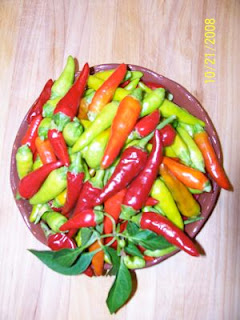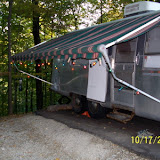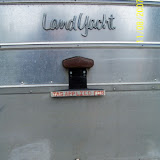
Part I: Prolegomenon to My Theology of Pastoral Care: First, You Make a Roux
First, an Item of Cultural Competency
What the *&^% is a Roux? And, how do you pronounce it? Roux = roo, rue, rhymes with blue, true, shoe, canoe.
Metaphors rely upon shared worlds. When I wrote this essay, I assumed enough people were acquainted with popular figures such as Emeril (Bam!) and Justin Wilson (the Cookin’ Cajun), and that Cajun cuisine had charmed its way into every enclave of America, even the insular New England states (wink to D. C. at FCUCC). Hasn’t everyone had a bowl of gumbo, a plate of jambalaya, a serving of étouffé?
Here in the Midwest, I have introduced my palate to many strange things: goetta, chicken and noodles served over mashed potatoes, chili that is not really chili served over spaghetti, chili that is chili served over elbow macaroni. Before landing here, I have eaten New England boiled dinners, I love steamers, and I love lobster so much I won’t eat it anywhere else but on a New England coastal picnic table. I pine for true Mexican poblanos in crème sauce. Rice and peas in Bolivia were somehow tastier than blackeyed peas and rice here at home. I will be very disappointed if I never get to go to Argentina for a steak. The curious palate is a good friend.
When I submitted this article, without this introduction, to my foodie friends, they received it with glee, finding it relevant and even provocative in a Pavlovian sense. One friend went right out that day and bought the ingredients to make a lovely gumbo for a dinner party that weekend.
Now, here in Indiana, I find that my reference to the roux has fallen flat like an unleavened biscuit left too long in the oven. There is no ring of truth, no salivary response, no urge to shop, cook, and serve. How, then, can I possibly expect to connect this phenomenon of my experience with my new world? How can I get an A on the assignment, to write my theology of pastoral care?
Not only must I explain, but I must get the attention of my examiners, who seem not only ignorant of this delicious preparation, but are also not the least bit curious to know or understand. I must take responsibility for this, to be sure my communication has not failed in our mutual service.
Isn’t this the way diversity works? Something strange and unknown comes along. To have any hope of crossing into the awareness of the Other enough to raise curiosity – the first step in empathy, I believe -- I must make these incurious and possibly suspicious readers hungry. I need to try to win them over, to bring together our two horizons of understanding, to create a hermeneutical moment that will satisfy both/all of us to the best possible degree. Only with this effort can I hope to convey the richness, vitality, and piquance of my cherished pastoral theological concepts.
The Roux Defined
A roux is the base for many recipes in a Southern kitchen, especially an Acadian or coastal kitchen. Try a quick Google search on the phrase, First, you make a roux. I got 3,180 hits. The phrase has become a code, a watch-word for those cognoscenti of the kitchen. The cliché also serves in any situation to indicate that there is one essential starting point for any process. Want to change the oil in your scooter? First you make a roux, meaning, Do you have the tools? Do you know the grade of oil to use? What kind of vessel are you going to use to catch the old oil? Want to perform surgery? First, you make a roux. Do you know what a scalpel is? Have you taken gross anatomy? Can you also suture? Nothing starts until you have the essential, crucial, most necessary ingredients.
Strictly speaking, the roux is the thickening agent added to other ingredients to form a stock, a sauce, a stew. This thickening agent is far more desirable than the lightweight corn starch and water, which should only be used in an emergency or in Chinese cuisine. In this strict sense, a roux begins with some form of flour (I use wheat) and oil or fat or grease (I usually use canola). Stricter traditionalists would use a tasty animal fat such as butter, lard, or the grease drained from a cooked cut of meat, preferably pork. The flour and the oil are stirred together into a thick paste.
The color of the roux is also a matter of folkloric argument. One dish calls for a light roux, one for a dark roux, one for a medium roux. You can measure the length of cooking time for a roux by the number of beers that are consumed while stirring the roux. What I’m talking about here is, to what degree can you cook the roux, browning the flour and oil, before burning it, to produce the solid line of bass and baritone that will hold up the range of symphonic flavors you will add to your creation?
With more practice, more refined nuances can be achieved in color: peanut butter, chocolate, coffee, brick, black. Flavors become more nut-like with more browning. Never stir more flour into a roux at the last minute. Under-cooked flour is pasty; it must be given enough cooking time to blend. Vegetable oil will get the darkest roux because the oil has the highest tolerance for heat. Butter and other animal fats will burn quickly. Olive oil will burn more quickly than canola.
Once the roux has attained the color you desire, add vegetables such as onion, celery, garlic, carrots – stout and flavorful vegetables that provide much of the seasoning. The French and Acadians call the mix of celery, onion, and carrots the marapois. Adding these ingredients to the roux and allowing them to cook to a transparent consistency will draw their flavors into the roux.
The stage of adding ingredients to the flour and oil is still the roux. Only when a liquid is added, such as stock, water, beer, wine, and the flour and oil disperse into the liquid, and vice versa, does the roux cease to be strictly the roux. Then it becomes the next stage: the base, the sauce, the stock, etc. But, the roux is always still present. The flavor and color of the flour and oil permeate the recipe and make all the difference in the overall success of the meal. Different vegetables, spices, and meats flavor and define different distinct recipes, but the essential starting point, the roux, is the foundation. Now, on to pastoral theology.
Part II: My Theology of Pastoral Care: First, You Make a Roux
The possibilities for theology of pastoral care are quite thick and rich and might prove to be overwhelming to prepare. Within the span of a few pages, I find only three categories are manageable, but these three can give shape to a satisfying enough recipe. I wish to present my theology of pastoral care by using three broad categories, incarnation, community, and healing. They form a thick and rich base for pastoral care, just like the elements of oil, flour, and the heat that binds together a roux fit for any good stew.
Recently, my niece requested a copy of my recipe for The McWilliams Family Roux, as if we have such a thing, a named recipe, codified within our family kitchens. Her request is precious. Her father (my brother, Robert, rest his soul), was a fine cook, and she saw him prepare many wonderful meals from scratch. Such a thing as a McWilliams Family Roux brings tears to my eyes, and brings to mind a recipe tested over time, applied the same way in all circumstances with such consistency that its endurance is unassailable, and its identity would be immediate for anyone who tasted it. Ah, yes, this gumbo started with The McWilliams Family Roux, no doubt!
There actually has never been such a recipe as The McWilliams Family Roux, until I wrote it for my niece and posted it as a note on my Facebook page for her and all friends to see, use, comment on, take issue with, improve, disprove, or whatever might come to mind. In fact, at the end of my writing, I invited all such interactions with my recipe. One friend reminded me that the document I posted for my niece was of such length and illustrated with such stories as to account logically for the failure of her use of my much shorter version sent to her on an index card. Now that she has all of the little nuances of time, temperature, color, and stories of applicability to varieties of soups and stews and gravies, she will replace her card with this longer and much more colorful example.
As I present my theology of pastoral care, I have a similar feeling to approaching the task as I did in presenting The McWilliams Family Roux to my niece. I have made long years of study of the theology of pastoral care. I have written about it, taught it, and performed it for so long, yet taking up the pen to set out a reasonable account seems as if it must be happening for the first time, ever.
Rather than turning to trusted texts of Seward Hiltner, Nancy Ramsay, and Emmanuel Lartey, I am going to tell this story of my theology of pastoral care as I did for my niece. I am going to start by telling what I do, making recommendations along the way and illustrating with enlightening encounters in which I have found the method to have proven to be, as for Goldilocks tasting the porridge of the Three Bears, “Just right.”
Incarnation
My theology of pastoral care begins with the concept of Incarnation. I am most familiar with the Christian version of incarnation – the embodiment, flesh-and-blood realism, actual presence – in the world of God’s person for God’s people, Jesus of Nazareth. Many faith traditions have exemplary figures of self-giving divine love sent to care for those who are suffering. I take my own call to action from the story in Luke’s Gospel, 4:18-21. Jesus announces to the people, "The Spirit of God is upon me; God has anointed me to tell the good news to the poor, to announce release to the prisoners and recovery of sight to the blind, to set oppressed people free …”
I take this passage personally, as my own call to be God’s embodiment in the world, to be present with those who are oppressed, poor, imprisoned, wounded. Acting upon these words is, for me, the work of pastoral care, bringing the people of God into places of suffering in the world.
In the hospital setting these past four months, I have seen this text presented to me time and time again. I shared with my CPE group the stories of two different cases, two women caught up in desperate circumstances of poverty, oppression, disease, and mental handicaps. In each situation, these women were preyed upon by others who were also broken and suffering. Social service agencies could have served as a form of incarnation, addressing the poverty, addictions, and mental handicaps suffered by these individuals. Who will help if these democratically erected services fail? Somehow, the incarnation is present in the chaplain’s witness and the nurses’ ministrations of care. I felt the limitations of my usefulness in each story, yet I felt that I was called to be God’s agent to advocate for the well-being of each. Only God knows how their stories will continue. My call is to be faithful in these moments, to do and be God’s person, to embody God’s presence.
Community
The second essential ingredient is the setting of community. Pastoral Care as a discipline of study is relatively a recent addition to theological education. The timing could not have been better orchestrated. At the beginning of the 20th Century, the sciences of psychology, psychiatry, sociology, and anthropology took root in the American and allied European universities and centers of health and healing, and along with them, the field of pastoral care flourished. For many decades, pastoral care was maintained within the boundaries of human sciences, as an extension of the theories and practices of these sciences, especially as a study of the individual and his or her maladjustments to the modern world. However, many recent scholars and authors have pointed out that the exchange between theology and the human sciences was not reciprocal.
Psychology, psychiatry, sociology, and the other human sciences did not embrace theological explanations of the roots of human suffering in the mainstream. Such concepts as sin, bondage, oppression, spiritual dis-ease, and soul-sickness were regarded as relics of a former age of superstitious religiosity. The mainstream of pastoral care did not disagree, and for a very long time sought to distance itself from the backwaters of theological understandings of the human condition.
Lately, however, pastoral theologians have begun to write and teach that the language, theories, and practices of the human sciences cannot fully explain the features of and answers to human suffering. Human community and its core values, whether expressed through churches and other gatherings of faith, family systems, neighborhoods, or cultures, are better places (than the institutions of human sciences) to reorient suffering people, to help them find the bonds of trust and safety, the stories of meaning and belonging, and the resources of restoration that they need. Meaning, belonging, restoration, and trust are but a few essentials of human flourishing within community. Finding these in the actual exchanges of understanding of both theological and human science resources is the responsibility of pastoral caregivers. We are trained to recognize the differences of explanations and benefits of both worlds of meaning, to act in the interstices of these worlds and help mediate between them for the benefit of individuals and communities.
In the hospital context, the range of community of care-giving is visible in weekly or daily care planning meetings on units of care such as Family Medicine, Hospice, and the Neonatal Intensive Care Unit. Chaplains are accepted members of the team in these units, along with nurses, physicians, specialists, housekeeping staff, social workers, psychiatrists, and many others, as decisions are made for discharging patients after their stay in the hospital. Patients’ own pastors are invited to be part of the ongoing care of their parishioners. Surely, the opposite can be true, that faith communities can sometimes limit possibilities for flourishing, but when possible, involving an opening for meaningful engagement in church, synagogue, nursing home, and other supportive systems can improve the outlook for someone’s suffering. Even the act of privately praying with an individual has a communal aspect, opening up the communication beyond the single voice or thought to include others.
Healing
Finally, the element of healing brings together the paradoxical notions of hope amid suffering, abundance amid poverty, sight amid blindess, binding up of wounds, and freedom of captives. Healing is found in many expressions besides recovery of a previous state of apparent wholeness. Wholeness may depend upon a new sense of meaning of the term, “healing.” A wounded person may not recover to the condition that existed prior to the wounding. Healing for that one might not be a visible condition of restoration of a limb, an eye, or a body part. Healing might refer to some aspect of the person that is not readily understood to be related to the “presenting concern.”
I met with a young man, father of four children, son of a broken marriage, with himself having been married once before, and kept at a distance from two of his children. He was waiting to have part of his hand removed due to an incurable infection. He was helpless to change the outcome of this disease. He also was in need of help from his mother.
His current family became homeless while he suffered helplessly in the hospital, uncertain of their future. His lover and two children of his current relationship needed the young man’s mother to open her heart and her home to take them in. The young man knew that he could not afford to keep his family in hotels while he recovered, and other than his mother, the only people the children and their mother could turn to was a stepfather with a history of child sexual abuse.
Turning to his mother was his only choice. Not even a homeless shelter would take them in because they were not married. He was truly poor, oppressed, wounded, and captive. Because of a long history of poor impulse control due to a mental illness, he had been estranged from his mother and her husband. This young man had to beg his way back into his mother’s grace to secure a safe home for his family. Going back to this home would represent a kind of healing for this young man. As he left the floor for surgery, he was hopeful of his mother’s mercy.
As I conclude this over-long essay, I find that these three essential ingredients of incarnation, community, and healing provide an excellent base to start any substantial program of care. This recipe holds up well, invites the addition of varieties of texture, flavor, and setting. As many of my favorite recipes begin, so begins my theology of pastoral care: First, you make a roux.
Image borrowed from http://www.cajunfrenchblog.com/2009/01/louisiana-leroux/ who got it from http://www.flickr.com/photos/deadhorse/401048298/ until I can shoot my own.




 back in the day, August 8, 2008.
back in the day, August 8, 2008. 



















